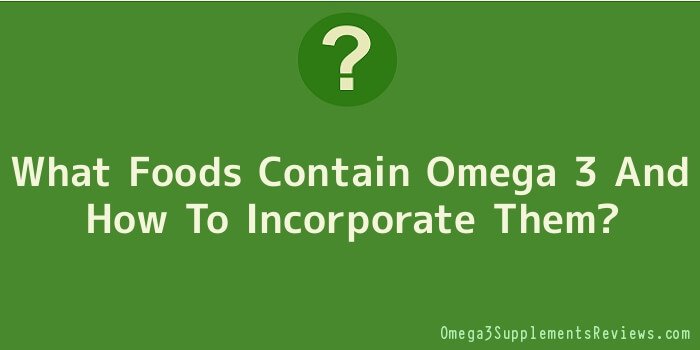
If you are wondering what foods contain Omega 3, you are probably trying to achieve health benefits by increasing your fish oil consumption. Omega 3 contains 3 key fatty acids — ALA, DHA, and EPA.
You can find each of these in natural whole foods, though you may want to consider a supplement, as well.
1. ALA Foods
ALA, or alpha linolenic acid, is found in more food sources than the other two fatty acids. This said, it can only be used by the body when converted into DHA or EPA. It is more efficient to consume EPA and DHA than to rely solely on ALA for your body to convert.
ALA can be found in commonly fortified foods, such as cereals. It is found in its natural form in the following foods:
- Dark leafy green vegetables
- Flaxseed and flaxseed oil
- Hemp oil
- Walnuts and walnut oil
- Pumpkin seeds
- Soybean oil
You could easily increase your consumption of spinach and walnuts to up your ALA intake, or start consuming flaxseed. However, all of the ALA you could eat would not take the place of the EPA and DHA that your body needs.
The body simply cannot convert ALA efficiently enough to be a replacement. Humans are designed to make use of all 3 components of Omega 3 fatty acids.
2. DHA And EPA Foods
EPA and DHA fatty acids are clearly of utmost importance in your diet. They are responsible for a world of mental and physical health benefits. A few of their responsibilities include cardiovascular health, mood stabilization, and preventing inflammation.
These components are found in similar food sources that include the following:
- Tuna
- Herring
- Salmon
- Anchovies
- Sardines
- Other species of oily fish
- Some types of algae
If you are not a fan of seafood, you will have an impossible time acquiring any EPA or DHA from whole food sources. Even if you do like fish, it may be harmful to your health to indulge in too much fish. Cold water fish, such as tuna, tend to have very high concentrations of mercury.
Although most people can process small amounts of this heavy metal, an excess can have dangerous side effects. Pregnant women, in particular, should not consume any deep sea fish, as they and their foetuses are particularly vulnerable.
Why Supplements Make Sense
Now that you know what foods contain Omega 3, you are probably wondering how you can possibly consume enough of it safely. There is a reason that fish oil supplements have become popular in recent years. They can provide a safe and affordable alternative to whole fish.
A well made supplement, such as Xtend-Life, will have no fishy taste or smell. It will be easy to consume on a daily basis. Xtend-Life products are guaranteed to be 100% free of mercury, PCBs, or other harmful toxins. You can easily get your recommended dosage of essential Omega 3 fatty acids with a high quality supplement.
There is no need to scratch your head over what foods contain Omega 3 when you can easily get all of the benefits from an Xtend-Life supplement.
